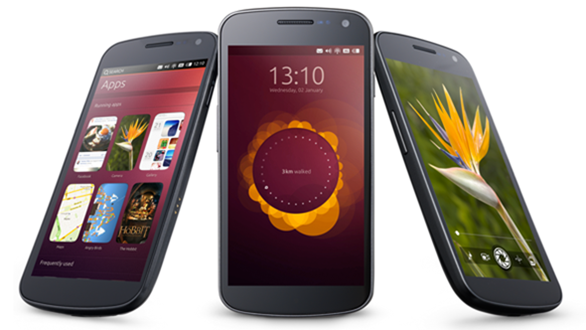The mobile industry is currently a battle between two main platforms — iOS and Android — and although the fringe parties are struggling to keep up with Apple and Google’s respective ecosystems, this hasn’t deterred Canonical from taking its famed Ubuntu flavor of Linux and bringing it to the small(er) screen. Today, the company has released the first "true" version of Ubuntu Touch for mobile with the Ubuntu 13.10 update, and it has been optimized for a couple of Google’s most significant smartphone releases including the Samsung Galaxy Nexus and LG Nexus 4.
The release is designed for OEMs looking to install Ubuntu Touch by default from next year, and although the ecosystem has shown a great deal of promise, Canonical faces perhaps even more of an uphill battle than the likes of BB10 and Windows Phone 8.
Apps win prizes in the smartphone industry, and while iOS and Android both have close to one million each, the chasing pack has struggled largely due to their respective lack of big-name apps. What’s more, the Ubuntu Edge smartphone, which promised a heavily spec’d-out handset boasting 128GB of on-board storage, failed to reach its target on Indiegogo, and with that handset coined to be the show-piece of Ubuntu Touch’s launch, everything already looks a bit up in the air.
The release of Ubuntu Touch comes with a fairly bog-standard collection of apps. You get your browser, weather app, clock and calculator, but although it may not be much, they offer a relatively good idea of how Ubuntu Touch is beginning to take shape. There’s also the full SDK, extensions and templates for devs out there looking to dabble in something new.
To even get to third in the race behind iOS and Android is going to be a real test of Canonical’s resolve. The mobile industry has become increasingly cut-throat, and there’s not much room for platforms that fail to thrive. BlackBerry’s spectacular demise over the past couple of years is a testament to that, and with the Ubuntu Edge already failing to gather enough of a following — even given the popularity of Ubuntu in general — it will be nothing short of a miracle if Ubuntu Touch remains anything more than a passing afterthought in a couple of years’ time.
To download and install Ubuntu Touch as part of Ubuntu 3.10, visit: ubuntu.com/phone/install
You can follow us on Twitter, add us to your circle on Google+ or like our Facebook page to keep yourself updated on all the latest from Microsoft, Google, Apple and the web.

